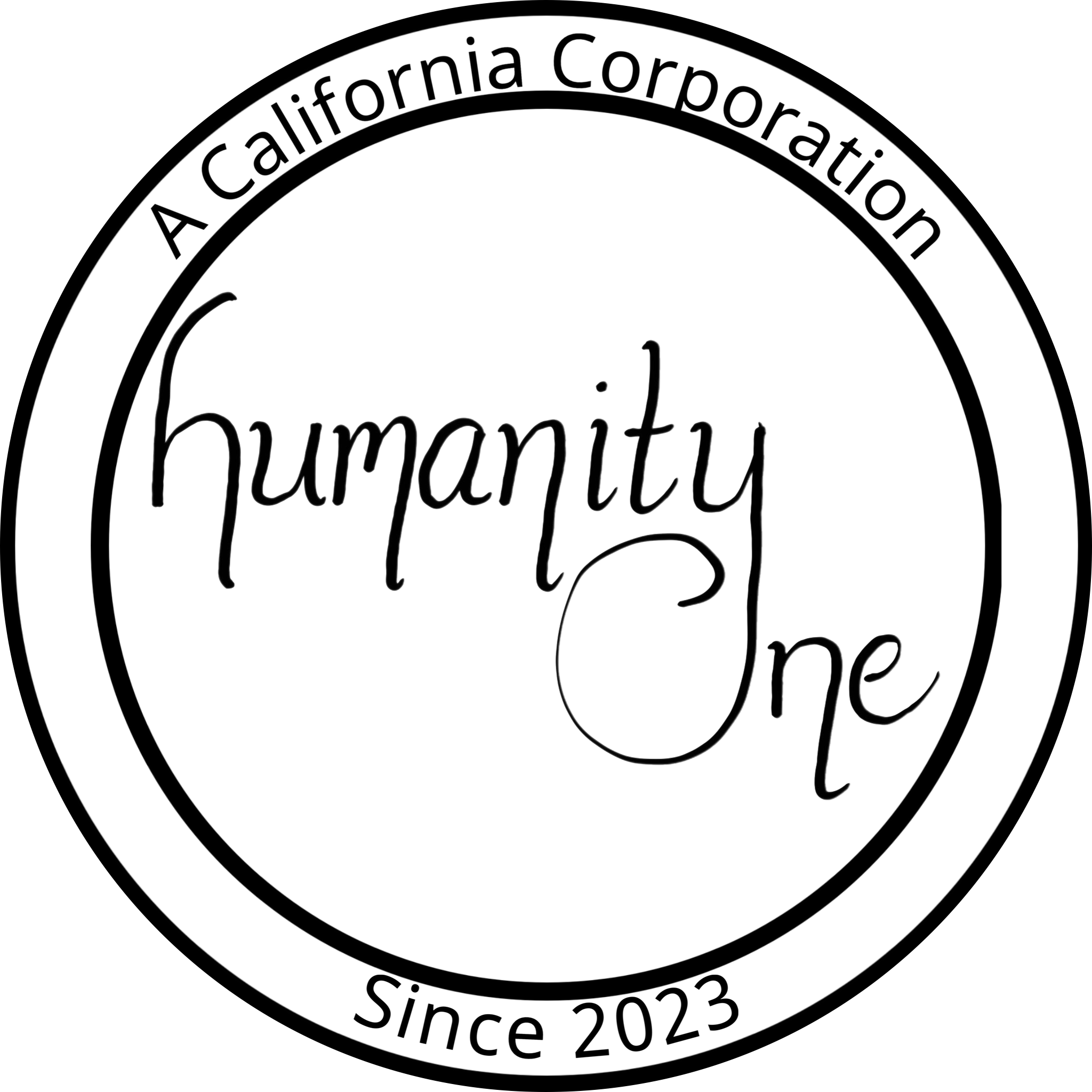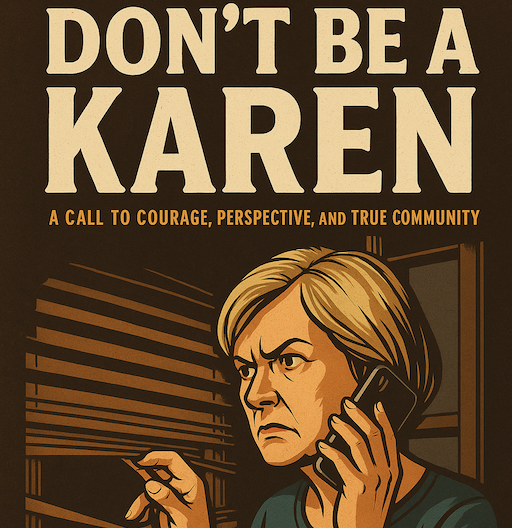There’s a spirit creeping through our neighborhoods. It whispers behind fences. It watches from windows. It picks up the phone not in crisis—but in control. It doesn’t lead. It doesn’t serve. It reports. It sticks its nose in everywhere — into everyone else’s life and business, not to try to be helpful or useful, but to tell everyone what’s what and what it should or shouldn’t be. This modern phenomenon has become so common that society has given it a name, and we have named it: Karen.
Of course—we all know a Karen is not a specific person but, rather, a particular type of person.
We’ve all met these types: the hall monitor, the busybody, the tattletale, the self-righteous twat-waffle who has always got something to say about what you’re doing, how you’re doing it, and whether they approve or not. This person believes that they, as an example of the pinnacle of human values has perhaps not just the right but the duty to pass judgment and impose dictates because theirs is so obviously superior to yours.
While this concept has become a meme, do not make the mistake of dismissing it as merely a trivial cultural idiosyncrasy of our time.
There is something deeper going on here. Something dangerous.
This is about what happens when fear masquerades as virtue, when comfort becomes more important than freedom, when judgment becomes a hobby and tattling replaces courage.
And… this is about what kind of neighbor you are.
Freedom is Not a Threat
Let’s get one thing straight: Freedom is not a threat. Living in a free society means other people are going to do things you don’t like.
They’ll park funky. They’ll talk loud. They’ll build odd things in their yard. They’ll collect things you think are worthless. They’ll sleep at odd hours. They’ll wear pants with no underwear. Or, in other words, they’ll live outside your script; they’ll do things that you would never do.
Newsflash, Karen — That is not a crisis. That is freedom.
Unfortunately, a Karen doesn’t see it that way. She sees anything unfamiliar as dangerous, and anything different as a violation. She doesn’t ask, “Is it wrong?” She asks, “Do I approve?”
And when the answer is no—she picks up the phone and dials in the authorities.
She calls the county. She files a complaint. But make no mistake — she is not seeking harmony—she is seeking compliance.
When Did We Stop Talking to Each Other?
Depending on your age, you may remember that there was a time when neighbors used to knock on doors. When this happened, problems were able to be handled with conversation, not citations and this is because we gave each other the benefit of the doubt.
But now?
Now we call code enforcement over a chicken coop. We file anonymous complaints about dust or noise. We treat disagreement as a threat and difference as an emergency. We don’t talk. We escalate. We don’t ask, “What’s really going on here?” We assume the worst—and then we rationalize our intent to weaponize the rules.
That is not community. That is cowardice. That is the quiet tyranny of the self-righteous.
Being a Karen Is About Control
Let’s not get stuck on stereotypes. Karens come in all forms: men, women, old, young, rich, poor. What unites them is not appearance—but attitude. A belief that they know best. A compulsion to control. It’s not about protection. It’s about power. It’s not about safety. It’s about managing their own anxiety. It’s the kind of person who would sooner see your project shut down than see your vision succeed without their permission.
Don’t Be a Karen. Be a Citizen.
Citizens, on the other hand, aren’t afraid of complexity. They know liberty is messy. They respect boundaries—but not arbitrary ones. They solve problems with grace, not bureaucracy. They show up to lend a hand instead of to point fingers.
Being a citizen means standing for principles, not personal preference. It means holding space for lives that don’t look like yours. It means letting go of the illusion that the world must be tidy to be good.
It means learning the difference between:
-What’s annoying and what’s unjust
-What’s inconvenient and what’s unsafe
-What’s yours to address—and what’s none of your business
Ask Yourself:
If you’re confused, ask yourself:
Is someone really in imminent danger—or do they just do things differently from me?
Have I spoken to them yet—or only judged from afar?
Am I actually protecting the community—or simply guarding my own comfort zone?
Am I a source of peace—or am I a thorn in the side?
The Future Depends on This
The reason this matters is because here’s the truth: Tyranny rarely begins with soldiers. It more commonly begins with citizens policing each other over minor sins. It begins when we stop seeing our neighbors as equals and start seeing them as suspects. It begins when we decide to impose our preferences upon the rest of the world.
This is a fear response. Someone who is confident, secure, and happy is too busy enjoying their life to concern themselves with micromanaging everyone else’s. People who are righteous, rather than self-righteous do not insist upon others coloring in between the lines, or thinking inside the box. The problem here is that when we allow fear to drive us, when we let petty grievances become policy, when we let complaints carry more weight than reason does— then we will get the kind of society we deserve:
Silent. Sterile. Suspicious. Superficial. Controlled cookie cutter clones. Polite on the surface. Rotten underneath.
So before you file that complaint, before you post that rant, before you weaponize a rule to win a petty battle— Ask yourself: Who am I becoming? Who am I to dictate how other people can live their lives?
Are you a neighbor? Or are you a snitch? Are you a peacemaker? Or are you a hall monitor?
Are you a fellow citizen? Or are you a Karen?
At the end of the day, if we want a world where freedom means something… If we want a society built not on fear, but on trust— Not on shame, but on strength— Not on blind obedience, but on shared responsibility— Then we’re going to have to grow up.
We’re going to have to stop calling the cops on chickens. We’re going to have to stop filing complaints over the color of someone’s shed. We’re going to have to stop outsourcing our discomfort to bureaucracy. We’re going to have to remember how to be neighbors. How to listen. How to tolerate. How to live and let live. How to make room—for chaos, for difference, for the sacred unpredictability of human life.
Because the goal is not a perfectly ordered neighborhood. The goal is a thriving one. A human one. And humans are weird, messy, loud, and beautiful. That’s the point. So, be brave enough to let others be free, even when it makes you uncomfortable… because your discomfort is your issue to address within yourself, not your mission to regulate in others.
Codes don’t build community. Citations don’t make you safer. What is required is character, and character isn’t something you can legislate.
Orderliness is not a virtue; it’s a preference, a personality quirk. Freedom is the virtue we need to champion, because whether you realize it or not the freedom you stifle, hinder, or impose upon someone else today will be the freedom that is taken from you tomorrow.
May we all look inward toward tending our own lawns before reaching over the other side of the fence. We all want a better world, but it starts by being a better neighbor. Lead with curiosity instead of judgment. Extend a hand before you point a finger. And the next time you see something you question… try knocking on a door instead of slamming down a gavel.
Community isn’t built on punishment; it’s built on presence. On perspective. On the humble courage to live and let live.
Don’t be a Karen.
Be a human.
Amen.


